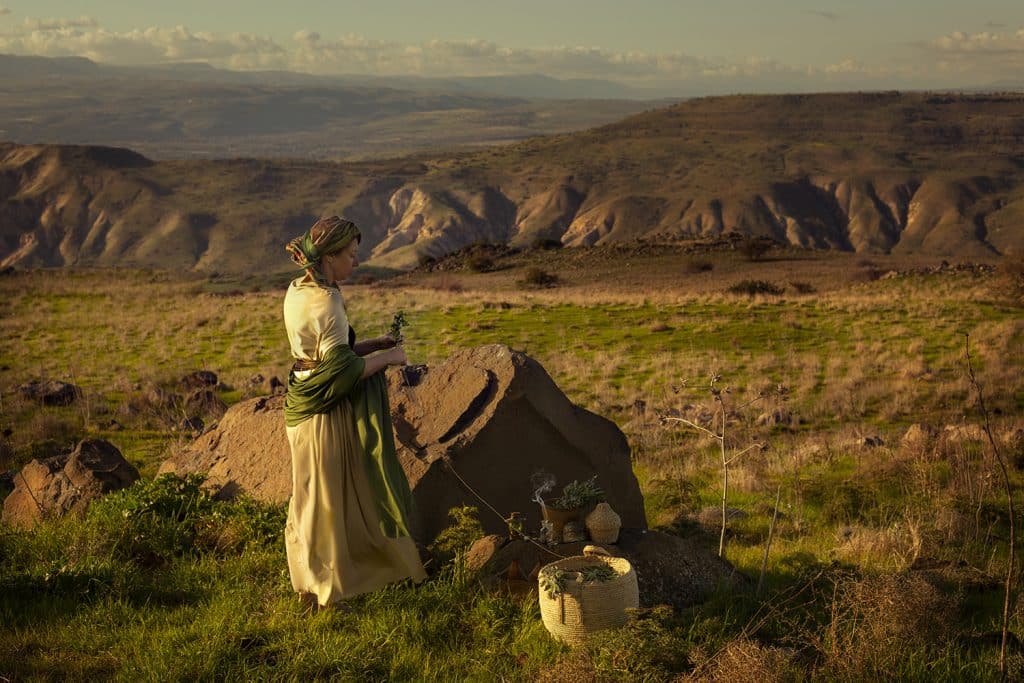Keturah

Keturah was the third wife or concubine of Abraham after Hagar was banished and Sarah passed away.
Her identity is somewhat ambiguous; while she is referred to as a concubine, the Ramban suggests that she had the status of a full-fledged wife, but was called a concubine to emphasize that Isaac was the legitimate and unchallenged heir.
Keturah bore Abraham six sons: Zimran, Jokshan, Medan, Midian, Ishbak, and Shuah.
The names of Keturah’s sons were also the names of tribes that lived in the region from the Euphrates region to northern Arabia.
Abraham took Keturah as a wife when he was 140 years old.
The story of Keturah is told immediately after the marriage of Isaac and Rebekah.
According to a midrash in the Talmudic tractate Sotah, Abraham built a city of iron for Keturah and surrounded it with high walls to block out the sun. To help her cope with the darkness, Abraham gave her a bowl of shining jewels.
Identity and Relationship of Keturah
Regarding the identity of Keturah, there is a dispute among the sages. In some Midrashim, Keturah is identified with the banished wife, and she is now called Keturah because of her deeds that are pleasant like incense. Changing her name represents her conversion.
According to Bereishit Rabbah 60:14 (continued), Isaac went to Hagar and brought her back to his father’s bosom. On the other hand, those who claim that Keturah is the third wife argue that she cannot be identified with Hagar.
Opinions on Keturah’s origin are divided. According to Rashi, she was Egyptian, but it is easy to identify her with Hagar. The Radak explains that Abraham did not care about her origin in his second marriage but was careful that she was not a Canaanite. In contrast, the Ramban and Abarbanel believe that she was a Canaanite, and they learned this specifically from the absence of information about her origin.
Abraham’s three wives represent the three families of mankind
Abraham’s three wives – Sarah, Hagar, and Keturah – represent the three families of mankind, as the new humanity after the flood was founded by the sons of Noah, Shem, Ham, and Japheth.
In the Midrash (Bereishit Rabbah 48:9), it is hinted that “Sarah is the daughter of Shem; Keturah is the daughter of Japheth, and Hagar is the daughter of Ham.” In practice, they are listed in the reverse order in Genesis 25:6, with Sarah’s daughter listed first, followed by Hagar’s daughter and then Keturah’s daughter. With the marriages to these three women, Abraham fulfilled the promise, “and in you, all the families of the earth shall be blessed.” From his descendants through these three women, the promise was fulfilled, “and you shall become a father of many nations.”
The name Keturah
The name Keturah comes from the word “Ketoret,” meaning incense, and is related to the spice trade. The names of her sons, Dan, Medan, Ephah, and Sheba, are also clearly related to spices, precious stones, and gold – the trade items in the Arabian region during the biblical period.
